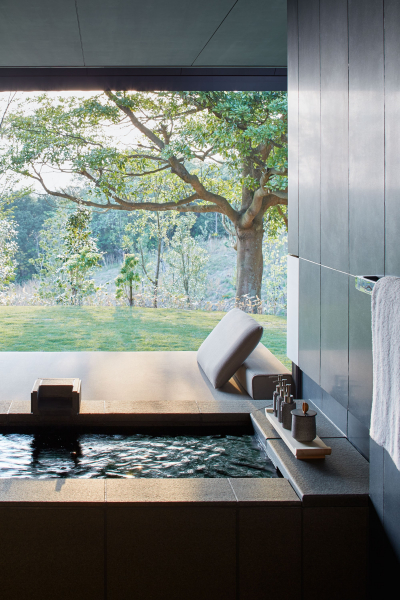
If you feel like you need to disconnect and recalibrate – and have a few days to do it – then look into booking a couple of nights at a Japanese ryokan. These traditional inns date back to the 8th century AD, and many of the earliest ones were located along the Tokaido route, which connected current-day Tokyo and Kyoto, and provided respite for nomadic samurai and traders. Now, however, they are a preferred lodging option for locals and tourists alike. These accommodations are characterised by tatami mat flooring, low wooden tables, shoji screens, futon bedding, and yukata robes.
But the real perks of staying at a ryokan are the impeccable hospitality (omotenashi), multicourse kaiseki dinner (and ensuing breakfast spread) that’s typically built into room rates, and, not always but sometimes, access to a nearby or on-site onsen (hot spring). These bathing facilities are usually communal, separated by gender, and, quite honestly, not for the modest. But if you aren’t easily abashed, they’re incredibly soothing and restorative.
For those who really want to soak in Japan’s age-old customs, traditional ryokans are certainly the way to go. And even if you’re seeking modern conveniences, the past couple years have seen an increase in contemporary options that still embody many of the same principles. Whether you prefer old or new, we’ve picked out some of the most luxurious ryokans and ryokan-inspired hotels for you to unwind at on your next trip to Japan.
Hoshinoya Tokyo
Last summer, Japan’s capital welcomed its very first luxury ryokan. Hoshinoya Tokyo is a sanctuary from the bustling city and its very crowded streets. Upon entering, you are asked to remove your shoes, which will be stored in one of the chestnut and bamboo cubbies that line the left side of the corridor. You’ll find that tatami mats are prevalent throughout the hotel, even in the elevators, evoking a very authentic vibe. There are 84 guest rooms in total, with only six on each floor, meaning that you rarely bump into another guest when wandering the halls or grabbing a snack in the ochanoma lounge, which is fully stocked with complimentary morsels and drinks at all times (onigiri and coffee are also served in the mornings).
Meals aren't included in room rates here, but complimentary soba is offered in the evenings. Nevertheless, the traditional Japanese breakfast, delivered straight to your room, is certainly worth a try, as is the dinner-only restaurant, where seasonal local ingredients delivered daily are prepared with French techniques. And while there is certainly plenty to do and see in Tokyo, you’ll have to make time for their onsen – part of which has a glass roof that’s perfect for stargazing if you decide to go in the middle of night – or the nightly gagaku performance, complete with complimentary sake.
Amanemu
While Amanemu may not bill itself as a ryokan, it has all the makings of a modern take on one. Located in the Mie Prefecture overlooking Ago Bay, the resort features 24 spacious suites and four two-bedroom villas with minimal interiors awash in neutral hues and wood. All of the accommodations come with a furnished deck and deep bathtubs with hot spring water on tap, while the villas have the added luxury of a separate onsen area. To fill your free time, bike around the grounds, grab a lounger by the 108-foot infinity pool, or head to the spa, the hotel’s pièce de résistance. The outdoor public area of this serene oasis is made up of two large hot spring-fed pools and a furnished sunken pit with a fireplace. It’d be easy to spend a day here, relaxing in the mineral-rich waters or lazing away in the sun, but make sure you don’t skip the complimentary afternoon tea at the lounge or an exceptional dinner (both à la carte and multicourse menus are available – the former includes Japanese, Chinese, and Western offerings) at the restaurant.
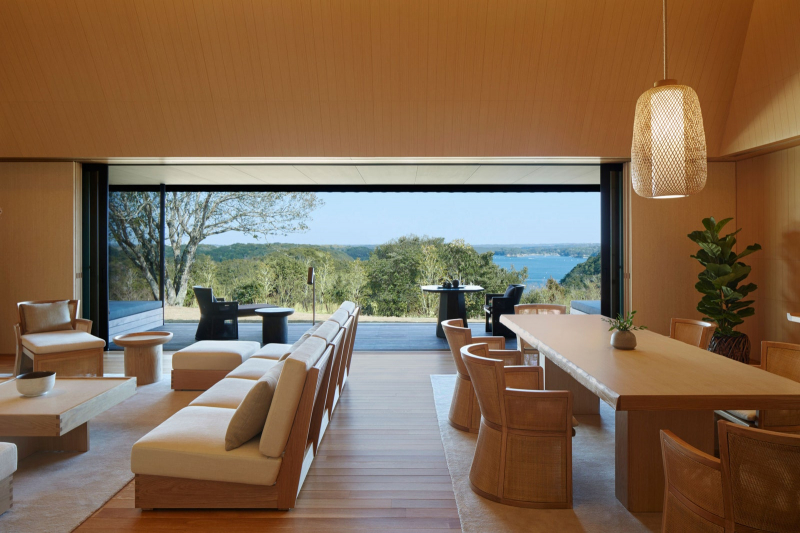
Gora Kadan
About two hours by train from Tokyo is the highly regarded hot spring resort town Hakone. A number of ryokans are spread throughout the region, but Gora Kadan is arguably the most famous. It previously served as the former summer villa of the Kanin-no-miya imperial family and was transformed into an inn in 1952. The Relais & Châteaux property has 39 rooms of varying types and sizes, but the most prized ones come with outdoor spaces and open-air baths. You unfortunately won’t be able to see Mt Fuji from any vantage point, but there are still mesmerising views of the surrounding landscape, which can be observed from the numerous balconies.
There’s also the Salon, which doubles as a library and has either massage chairs or curved loungers for you to recline in. And while communal onsen are available, there’s also a private option with a steam room tucked away in the garden that you can reserve. Your dedicated attendant brings breakfast to your room at a prearranged time, but there’s the option to have dinner in the original Elizabethan-style building should you want to stretch your legs.
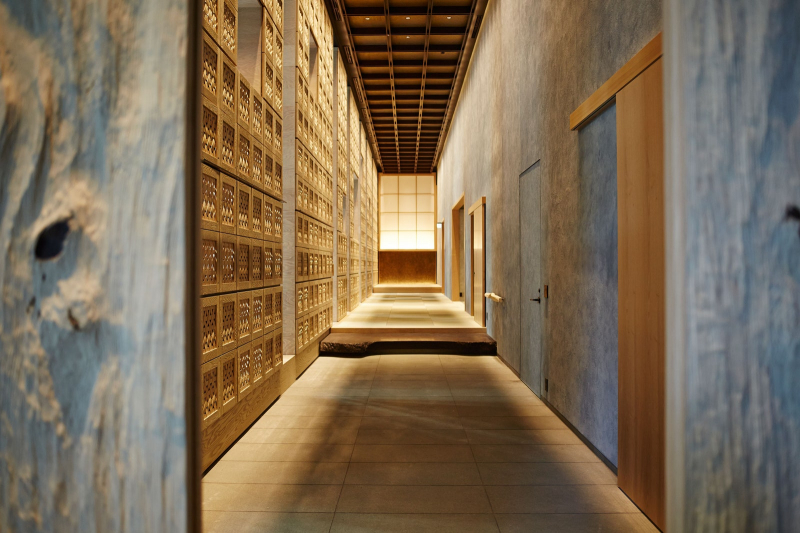
Nishimuraya Honkan
As soon as you arrive, it’s easy to understand the irresistible allure of Kinosaki. A willow-lined canal runs through this picturesque onsen town where its visitors are encouraged to wear their yukata and geta shoes to roam around. At one end of the main road, you’ll find Nishimuraya Honkan, a traditional ryokan founded in 1860.
The 32 Japanese-style rooms are archetypal of such establishments: tatami mat floors, low tables with legless chairs, an ornamental alcove (tokonoma), and sliding shoji screens characterise the accommodations. The most charming aspect, though, is the manicured garden, where you’ll find a pond of koi fish among the sculpted trees and stone lanterns. And while the property has its own hot spring bath, they also provide guests with a pass to several of the town’s public onsen, inviting you to venture out and explore.
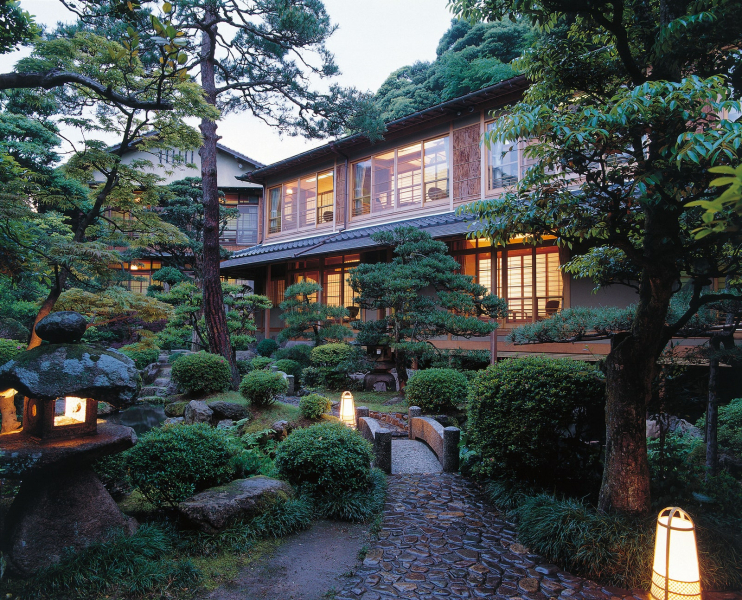
The Shinmonzen
Tucked away on a quiet street in the heart of Gion, the Shinmonzen is one of Kyoto’s best hotels. Opened in January 2022, this ryokan-inspired boutique property designed by famed architect Tadao Ando blends elements of traditional Japanese inns with modern sensibilities. This concept is beautifully represented from the moment you pass through the entrance’s noren curtains where a lengthy foyer features Ando's signature concrete on one side and is juxtaposed by light wood on the other, framing a singular work of art at the end of the hallway that changes throughout the year.
On the ground floor, you’ll find the Riverside Lounge where guests are invited to enjoy a matcha latte while perusing the collection of contemporary art, a nod to its sister property Villa la Coste in the South of France. It also doubles as the reception area where the friendly and attentive staff members who personify omotenashi set up shop, ready to craft bespoke experiences or take you on a tour around the neighbourhood. Upstairs are just nine suites, all individually designed, all impossibly chic. Accommodations with Western-style bedding feature plush hand-woven carpets while futons are set atop tatami mats. Shoji screens wrap around the interiors and balconies overlook the Shirakawa River. The majority of the rooms also boast oversized hinoki cypress tubs and sumptuous bathrooms are stocked with luxurious amenities like skincare sets and a Dyson hair dryer. Breakfast is included, best taken in the comfort of your own digs or downstairs on the terrace, and there’s also an on-site Jean-Georges restaurant that marries the world-renowned chef’s fare with local ingredients.
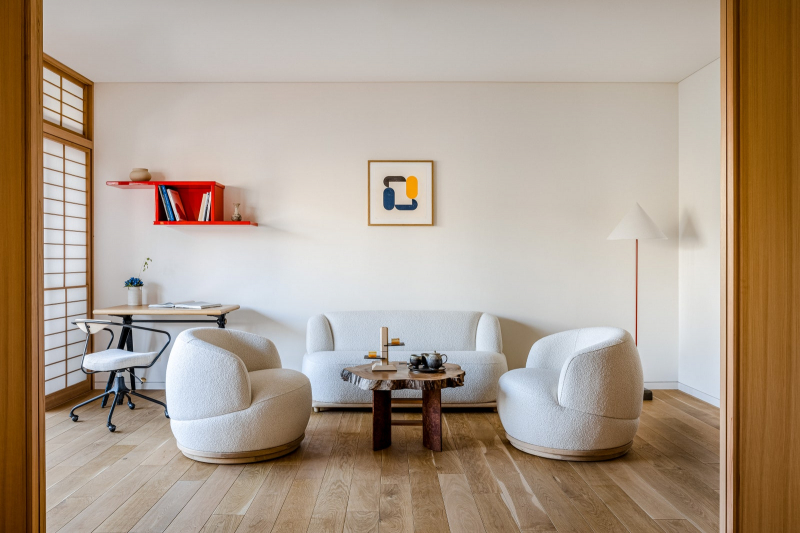
Naoshima Ryokan Roka
Naoshima is arguably the most famous of Japan’s art islands and now there’s even more reason to visit. When Naoshima Ryokan Roka opened its doors in April 2022, it became the isle’s first ryokan and one of the country’s most special gems. The intimate property creates a space to help guests connect with nature and truly unwind with a combination of unobtrusive buildings made from local materials; 11 minimalistic suites with open-air baths; landscaped gardens; and an impressive contemporary art collection that fittingly reflects its location. There are two on-site dining options that include Moya, a casual café and bar that looks out to the Zen garden, and Restaurant En, where the included breakfast and dinner are served. For the latter, guests have a choice between a seasonal kaiseki or sushi course that highlight local ingredients and the bounty of the Seto Inland Sea.
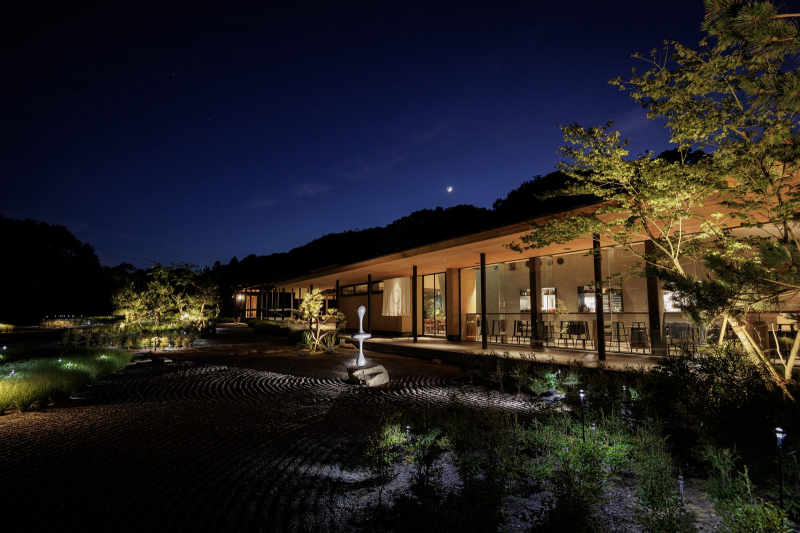
Beniya Mukayu
About an hour outside of the city of Kanazawa, Beniya Mukayu is a 16-key ryokan shrouded in forest that’s ideal for those looking to unplug and relax. While it dates back to 1928, the property combines time-honoured craftsmanship with contemporary furnishings, appealing to the modern-day traveller. Each of the posh digs looks out to lush greenery and features open-air hot spring baths. In addition to your private onsen, guests are also invited to spend time in the property's communal facilities at the spa. You’ll be highly encouraged to embrace a slower way of life with garden walks and time spent in the library; otherwise, consider opting for one of the many activities such as washi-making classes or a hike to the nearby Ozuchi village.
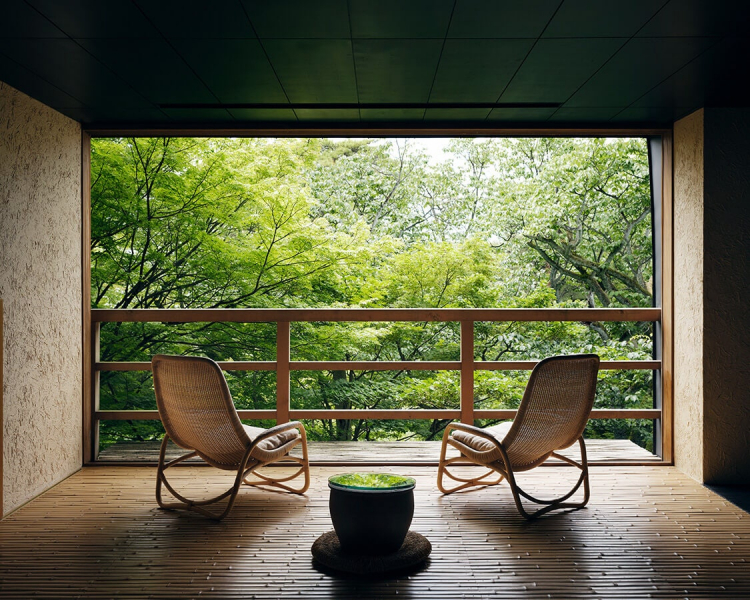
Zaborin
Surrounded by a birch forest in the Hanazono woods of Hokkaido, Zaborin is a modern ryokan that consists of only 15 villas. It’s easy to access, but the intimate property feels remote thanks to its natural surroundings. Rooms look out onto rolling meadows and the bar is a front-row seat to Mt Yotei. Upon arrival, you’ll get the chance to watch a 62-year-old tea master expertly prepare your complimentary cup of matcha. The ceremony takes place next to the hotel’s library, where you’ll find a variety of books and DVDs at your disposal. The building wraps around and encircles a private garden, home to the only public onsen on the grounds, where you can enjoy an alfresco foot bath. Unlike other ryokans, where communal bathing facilities are the highlight, Zaborin places a focus on privacy and has equipped each accommodation with two hot spring baths. One serves as the indoor bathtub while the other is located outside on the balcony and is made from either wood or stone (opt for the latter). Most of the spacious rooms are Western in style, with beds rather than futons, and trade in tatami mats for wooden flooring. It’s all chic and tranquil, and you’ll find that your meals, prepared by chef Yoshihiro Seno – with a focus on locally sourced vegetables and seafood – are truly unforgettable.
Ryokan Kurashiki
Located in the quaint Bikan Historical Quarter of the city it’s named after, Ryokan Kurashiki has been open since 1957. This intimate property consists of only eight accommodations, three of which were added in 2018 and boast canal views with plenty of natural sunlight. But if you want to stay where Sophia Loren once did, you’ll have to opt for one of the original rooms, specifically the Okuzashiki suite.
After you’ve roamed around the beautifully preserved district, soak your tired limbs in the onsen room – which can be booked for private one-hour sessions free of charge – before you dive into an exquisite kaiseki dinner. If you’re presented with a bowl of rice bathed in a fragrant broth with yellow leeks, prepare yourself to be surprised by how incredibly delectable the unassuming dish is. And in the morning when you’re having breakfast in the dining room with views of a peaceful garden, go for the butterflied fish cooked atop a personal charcoal grill.



